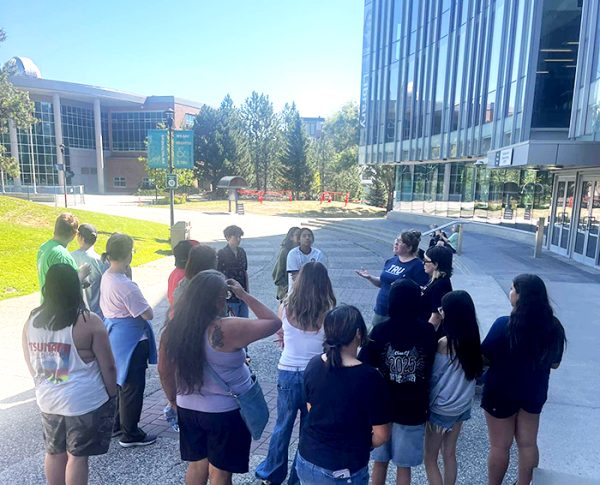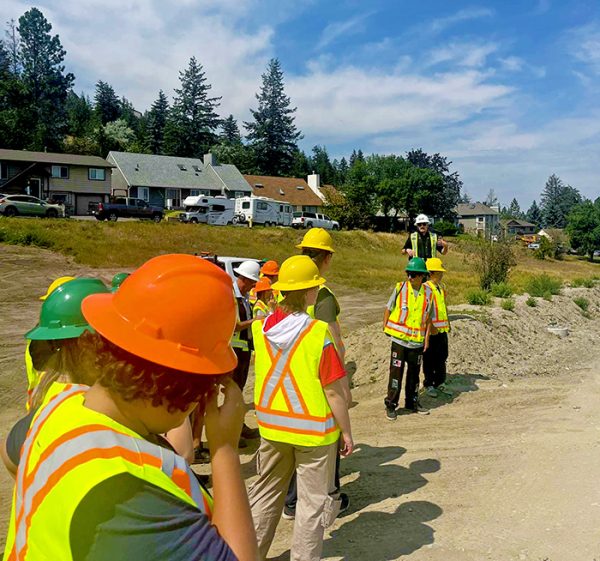The long-running TRU Indigenous Summer Camp welcomed 20 Indigenous youth from across BC to the Kamloops campus during the last week of July for a fun-filled immersion in university life.

Qelmúcw Future Students advisors lead 20 Indigenous high school students and chaperones on a Kamloops campus tour.
High school students from Grade 8 to 10 stayed in TRU’s North Tower residence for the week, touring campus, learning about the university’s supports for Indigenous students and exploring science, health and technology careers.
“Organizing this camp has been such a meaningful experience for me,” says Karisa Barker, a Métis student in her fourth year at TRU and camp coordinator for the TRU Office of Indigenous Education, which hosts the camp with a diverse group of faculty and community partners.
“It’s not just about science, it’s about making space where Indigenous youth feel like they belong. Seeing them get excited about their future and realize that they have a place here at TRU has been the biggest highlight,” she says.
Discovering university life
Since 2008, the summer camp has been demystifying the university experience for Indigenous youth and sparking their interest in STEM programs. Current TRU students, some of them previous camp participants, assist as chaperones and share their own stories. One of the key goals is providing culturally-relevant, hands-on experiences.
“I was one of the chaperones for the week of the Indigenous Summer Science Camp and it was a wonderful experience,” says Shalane Barker, a Métis student at TRU. “Being able to tie Indigenous learning into science was a powerful blend of tradition and discovery.”
Opportunities to make friends and get familiar with campus are a big part of the five-day camp. The packed agenda included an opening barbeque in the Horticulture Gardens, a Eureka Engineering Showdown, a campus scavenger hunt, water fight, paper-making session and Lahal tournament. Qelmúcw Future Students advisors led campus tours.

Students joined Acres Kamloops for a drones demonstration.
Academic workshops featured nursing, chemistry, biology, veterinary technology and a visit to the Acres Kamloops office and construction site at Sifton Lane for a drone demonstration.
Indigenous community members from Secwépemc Fisheries Commission joined students for an invertebrate workshop and led an outing to Steelhead (Sk’emqin) Provincial Park on the final day to fish and swim, sharing Indigenous knowledge and Secwépemc traditions.
“TRU’s summer camp is an opportunity for Indigenous students to see what a post-secondary education could offer them,” says Sharon Gottfriedson, interim associate director of Indigenous Education.
“It’s also a valuable experience for the TRU community,” she says. “It’s an opportunity for faculties to implement recommendations from the Truth and Reconciliation Commission, and a chance for current Indigenous students and alumni to connect with youth, gain leadership experience and empower the next generation of Indigenous scholars.”

